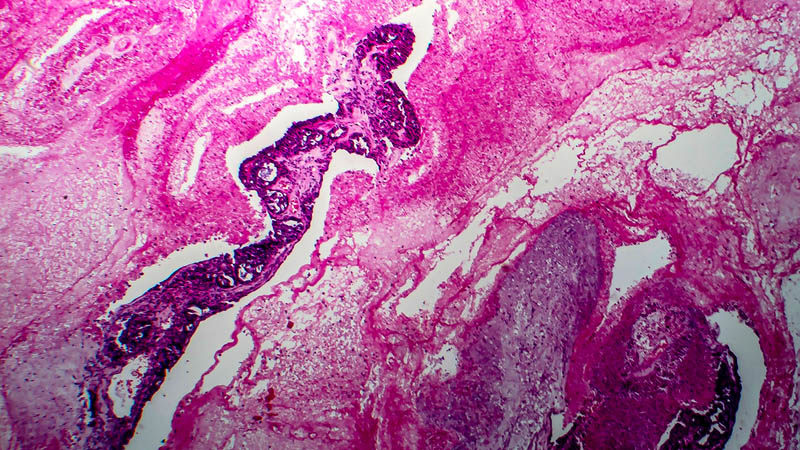Tissue expression of p53 protein and anti-p53 antibodies in serum of patients with carcinoma of the uterine cervix
Andrzej Lenczewski1, Sławomir Terlikowski1, Bożena Dobrzycka1, Waldemar Famulski2, Mariusz Koda3, Stanisław Sulkowski3, Marek Kulikowski1
 Affiliacja i adres do korespondencji
Affiliacja i adres do korespondencjip53 is the most commonly mutated gene in human neoplastic cells. The tissue expression of its product, p53 protein, may be assessed by means of immunohistochemical methods. Serum anti-p53 antibodies may be detected in 40% of individuals with mutated p53 gene. The key role in the humoral response to p53 protein is attributed to the prolonged half-life of the mutated protein and its accumulation within the cells. The anti-p53 antibodies occur very seldom in the population of healthy individuals. Therefore, they come in handy as markers. This paper assesses the tissue expression of p53 protein and the level of anti-p53 serum antibodies in the cervical cancer. Their prognostic value was analyzed, with respect to the histopathological parameters related, in turn, to the stage of the cancer. The correlation between the tissue expression of p53 protein as well as anti-p53 level and the histopathological prognostic factors was not established.









